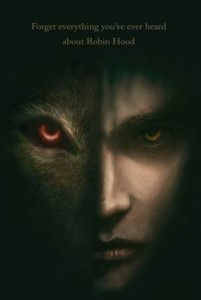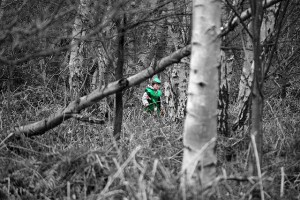Robin Hood, in his many forms, has been an influence for virtually my whole life. The first film my parents ever took me to see at the cinema was Disney’s 1973 version, with anthropomorphic foxes, bears and wolves taking the parts of Robin, Marian, the Merry Men and the evil Sheriff of Nottingham. The 1984 TV series Robin of Sherwood was essential viewing in our house, and a ripe topic of playground conversation. (One of my school friends insisted the lyrics to the Clannad title song ran “Robin, be-diddly-bom” rather than the more commonly-accepted “Robin, the hooded man”.)
I can’t claim to have seen all the film or TV adaptations – there are hundreds! – but I’ve certainly seen my fair share. I still maintain that the 1991 Kevin Costner vehicle Robin Hood: Prince of Thieves is the movie with the greatest trailer-to-feature quality drop off ever. Seriously – the trailer is incredible. A utterly stunning piece of film-making. Edge of the seat stuff. While the movie itself… not even Morgan Freeman or Alan Rickman can save it. More recently, I gave up on the 2006 BBC series after it jumped the shark at the end of the second season.
A few years ago, we took a trip to Sherwood Forest. It’s a kid-friendly tourist trap, all plastic bow-and-arrow sets and overpriced refreshments, but still… you come upon the thousand-year-old Major Oak, where legend says Robin Hood once hid, and the history and myth shine through. It’s still a magical place, despite the commercialisation.
I liked the Hollywood movie posters in the visitor centre restaurant, too. For me, Robin Hood has always been a star of the screen. I’m not sure I’ve read many books on the legend – not since my Ladybird book when I was a very small boy, anyway. I mean, what is there to say? What could you possibly put in a novel about Robin Hood that hasn’t been said a hundred times before?
Which brings me to Shadow of the Wolf, by Tim Hall.
I was lucky enough to get an advance proof when David Fickling Books, the publisher, was giving away copies on Twitter. When you’re given an opportunity to read a book before everyone else, you don’t just stick it on your shelf to wait its turn, so I started reading as soon as it arrived in the post.
And I was underwhelmed. It wasn’t that it was bad. Tim Hall has some stylistic quirks that I’m not keen on (for example, every once in a while he’ll drop into present tense for a few paragraphs, and while I can see he’s doing it for effect, I really don’t like it) but the story just wasn’t gripping me. The names were familiar – Robin Loxley and Marian – but the book begins with Robin and Marian as little children. The story is well enough told, but it’s Robin Hood – we’ve seen it all before. We’ve got hints of the supernatural, but that was popularised in the mythos by Robin of Sherwood back in the 1980s, which inextricably tied the myths of Herne the Hunter and Robin Hood. There’s a boot-camp section, where young Robin joins up with a band of trainee knights, forming friendships and earning rivalries. It’s nothing new.
I was enjoying the book. But for the first two hundred pages, my internal rating was hovering around the 3/5 mark. B-minus. Shows promise.
And then.
Just before the half-way point of the book, two hundred or so pages in, it all changes. Robin fails, and falls, and is defeated utterly. He’s destroyed. Ruined. Crippled.
And that just makes him more dangerous.
Robin of Sherwood hinted at a supernatural element to the legend. Shadow of the Wolf takes this premise and kicks it into orbit. Robin’s journey deeper and deeper into the forest, where gods walk as men, as women, and as beasts, tears apart his humanity, and leaves him more of an elemental than a man. A combination of Zatoichi and Swamp Thing.
It’s only Marian that connects him to the world of humanity, and only Marian that can hold him back from becoming a savage demon of the forest. Not that Marian is a shrinking violet, either – Tim Hall’s vision of Marian isn’t someone you’d ever want to cross. Not if you wanted to live.
Shadow of the Wolf resembles a superhero origin story more than it resembles Errol Flynn clad in Lincoln green, slapping his thigh and laughing heartily. It’s dark, and it’s violent, and it displays enormous humanity by throwing Robin’s nature into sharp relief against the darks shadows of inhumanity that surge within him.
Towards the end, we’re guided back towards more familiar territory, although the band of forest outlaws that include Will Scarlett and Much could never be called “merry men”, but the path we’ve taken to get to that point, the path through the darkest part of the forest, makes it feel like we’ve earned it.
Shadow of the Wolf is the first in a trilogy. If the next two books can keep up the momentum that begins after the first 200 pages, it has the potential to be something very special indeed.


